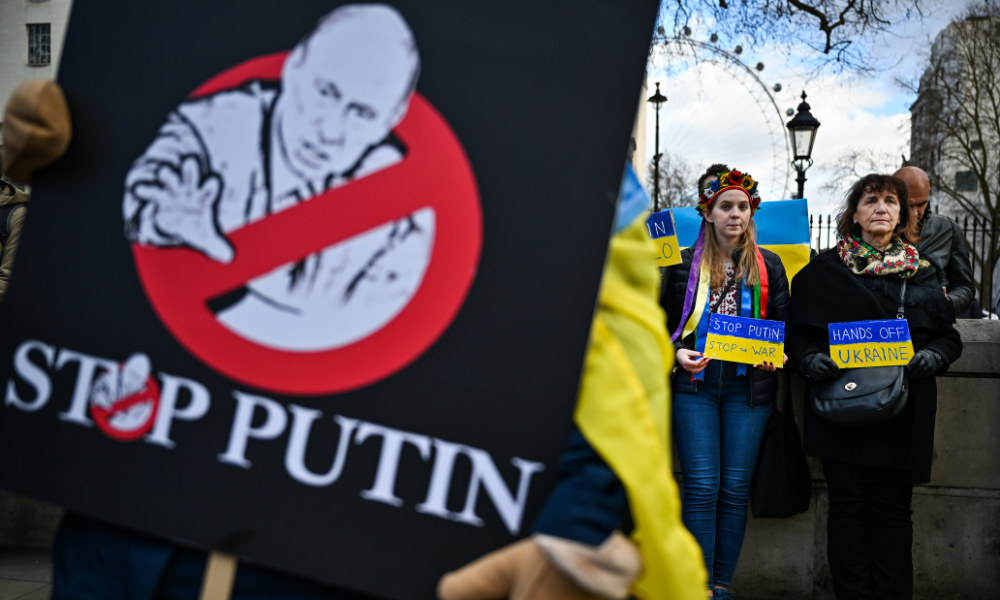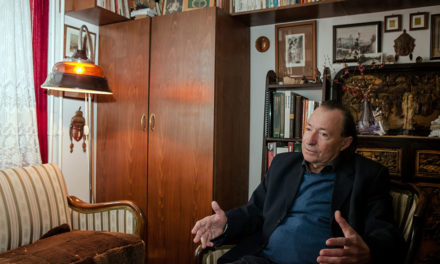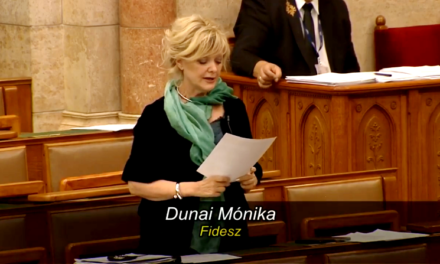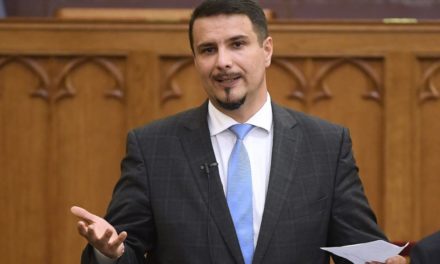Three stories of one war.
The Russian-Ukrainian war broke out two years ago. This seemingly objective sentence already shows that this war has multiple histories, and even behind the simplest statements, we take a stand in favor of one side's interpretation. According to the official Russian wording, this is not a war, but a "special military operation". The hundreds of thousands of dead and a lot of ruins are of course very much a consequence of war, but the fact is that Russia and Ukraine have not officially declared war on each other, and according to the frequent exchange of prisoners, there is some contact between their armies and/or their secret services. More importantly, if there is a war going on, according to Moscow, it started when the Ukrainians started shooting at the two breakaway republics in 2014.
This interpretation of the conflict is shared by almost no one in the West beyond the Russian borders. Not only because, parallel to the suffering of Donetsk civilians, Moscow also justifies the invasion two years ago with the supposed threat of Ukraine joining NATO. This latter explanation, however, is considered by many from the Western geopolitical schools to be at least considered.
The Ukrainian interpretation of the war was written by American and Western European communication specialists, and until recently it was the only one that reached the Western public. This story is based on the age-old Russophobia, which sees the country of the tsars, Stalin and Putin as the same evil empire, both terrifying and weak, diabolically evil and immeasurably stupid, a black hole to the east of the "free world". Since the invasion was started by the Russians after all, it would have been enough to argue with this fact, but Western propagandists did not want to confuse the minds of Texas voters with Slavic history going back to Kievan Rus.
This is how Putin got a hundred different types of cancer, this is how he died every month, this is how the ears of his supposed lookalikes were pierced, this is how the Russians ran out of ammunition by the summer of 2022, and this is how the victorious Ukrainian army won every battle. Tucker Carlson's interview with the Russian president blew up the international media because a significant part of the hundreds of millions of viewers were already amazed that Putin is alive and talking like a sensible person. Of course, this in itself does not mean that he is right, but
the overdrive of anti-Russian propaganda took its toll, and a moderately interesting conversation with him was considered an exposure of lies.
One of the greatest values of Western democracy is the freedom of the press. Unfortunately, it has suffered serious wounds in the last two years. The banning of all Russian news sources, the drastic, sometimes criminal, action against pro-Russian expressions and the isolation of Russian culture are incompatible with the requirement of impartial and objective analysis. It is no coincidence that the iron curtain of propaganda began to crack in the United States, where press freedom has been a constitutional value since 1791.
Of course, the New York Times is not a pro-Russian newspaper, as they complain in Kiev, but its editors know that there will be newspapers even after Zelensky. It would be in the interest of Ukraine, the Ukrainian people and, of course, the whole of Europe that the Western leaders lead the Kyiv system to a compromise solution. But the leaders of the European Union have become so captive to extremist propaganda that they helplessly watch the turn of the European public mood and the power game in Washington.
Although no clear results have yet been reached on the fronts, the realist school has won a major victory in geopolitical thinking, as it provides the most authentic interpretation of the Russian-Ukrainian war. Already in 2015, John Meersheimer made it crystal clear that if the West continues to push for Kyiv's NATO membership, it will destroy Ukraine. Many people in American academic circles were of the same opinion, and this is why Angela Merkel fought against Ukraine's NATO membership at the Bucharest summit in 2008. The representatives of the realist school believe that the world's security is based on mutual consideration of the great powers, and although you don't have to love Russia, you have to pay attention to its security considerations. Not for Putin's good looks, but to avoid nuclear war.
The followers of the realist school stated three important propositions at the beginning of the war:
• Russia cannot be defeated militarily,
• the Russian economy cannot be bankrupted by sanctions,
• Vladimir Putin cannot be overthrown domestically with a "color revolution".
Today, all three claims have been confirmed. I think it is not immodesty to describe that I have been representing these views here at Index for a good year and a half. Not out of friendship for Russia, but because the study of the American realist school and my own common sense led me to this conclusion. This was labeled as Putinism in the West and by many at home as well. But it would be a big deal if clarity and speaking the truth were considered Putinism. The realist school does not advocate surrendering to Russia. A new security system must simultaneously accept Moscow's realistic security interests and strengthen Europe's military power within NATO's current eastern border.
For many decades, the peace of Europe was ensured by the duality of mutual consideration and deterrence, and this way it could be preserved for new generations as well.
Of course, it would be worthwhile to think about what the well-known Western experts, gurus, entire research institutes and government consultants who proclaim Russia's military and economic collapse, Putin's death, and the impending Russian revolution as fact, based their claims on. Are they so ignorant of their profession, or did they knowingly lie? This question also leads to the extent to which democratic decision-making is endangered by turning expert opinion into propaganda.
Hungarian public opinion basically identified with the realist school, not so much on the basis of its scientific knowledge, but rather on the basis of its instinctive desire for peace. One hundred percent Russian propaganda appeared at the very edge of the media, the total pro-Ukraine view was only pushed by a few media outlets, and even a good part of the opposition public is in favor of peace as soon as possible. Contrary to popular views, the Orbán government does not identify with either the Russian or the realist school, as it officially wants the restoration of Ukraine's 2014 borders, including Crimea. (How honestly is another question.)
However, in my opinion, Hungary's interest would be an independent, neutral Ukraine that guarantees minority rights, which cannot be realized without sane territorial compromises.
The author was a member of the European Parliament
Featured Image: Jeff J Mitchell | Source: Getty Images













